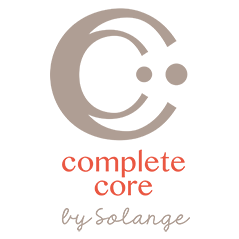Have you ever heard about Perineum Re-education? La Perineale Re-education as the French call it. This involves re-education of the pelvic floor muscles to restore normal function, strength and tone to the vagina and core muscles.
If we were living in France, this would be a no brainer. The health care system in France provides women up to 20 sessions of physical therapy to re-educate the perineum and restore the abdominal wall. When I suggest this therapy to people here they look at me like I have six heads and are in disbelief when I tell them I’ve done it myself.
Perineum re-education is very important and neglected in this country. The pelvic floor muscles are weakened during pregnancy and undergo stretching and sometimes trauma during delivery. Even if you don’t have a vaginal birth, the muscles are still affected. The abdominal muscles and pelvic floor muscles are very much interconnected as they share the same connective tissue called fascia. So you can absolutely have pelvic floor issues even if you’ve had a C-section.
Women on average in the United States have babies a year and a half apart. This leaves a short window of time to get the body back to its pre-pregnancy state. If you’re cleared for exercise at 6 weeks, add on a few months by the time you have your act together, and you may be pregnant again at 8 months post-partum. You have a very short amount of time to work with. And how many people actually care about getting their pelvic floor muscles strong again versus taking off the baby weight?
Well here are several reasons why you should care:
(Blamb/Shutterstock.com)
- The pelvic floor and your vagina is the center of your body. In order to have good core strength you must have a strong pelvic floor.
- The pelvic floor must be strong to give your body the internal support it needs. It supports your internal organs.
- A strong pelvic floor will improve your sex life. The strength of the pelvic floor is positively correlated with the ability to have orgasm. This alone should be reason enough for you.
- Pelvic floor exercises can help with urinary incontinence. You should not be experiencing any urinary leaking post-partum with coughing, laughing, sneezing and normal activities of daily living including bending, lifting and positional changes.
- Focusing on the pelvic floor will encourage a safe return to exercise. You should not have any urinary leaking or feeling of pressure in the vagina during exercise, especially with impact activities like running and jumping. Make sure your muscles are strong enough to support your recreational exercise.
- Pelvic floor re-education can help reduced pelvic pain post-partum. Teaching the muscle to properly contract and relax post-partum can help decrease pain after birth. The muscles may be in spasm if you experienced any type of internal trauma or perineal tearing.
- The pelvic floor is a key stabilizer of the pelvis. You can experience pain in many areas around the pelvis post-partum. Strengthening the pelvic floor and surrounding musculature will allow your body to maintain good alignment and stability.
What does perineum re-education actually involve?
Nothing that you won’t be able to handle after giving birth and going through your regular prenatal care. Treatment is performed by a physical therapist specializing in pelvic floor therapy. Your pelvic floor is like any other muscle in the body.
Sebastian Kaulitzki/Shutterstock.com)
- An assessment of the muscles. This is an internal exam like you experience at your doctor except without a speculum.
- Realignment of the pelvis. Manual adjustments will be made to help restore alignment if necessary.
- Strengthening with an internal sensor. You will finally learn how to execute a kegel properly! And you will see the strength of your muscle contraction on a computer screen.
- Restoring proper mechanics of breathing.
- Abdominal assessment and strengthening exercises. Checking for diastasis recti separation. Instruction on proper execution of Transverse Abdominus contraction and coordination with correct breathing.
- Injury Prevention. What you can do post-partum to facilitate your recovery.
I personally recommend going at 6 weeks post-partum. Many places will allow you to bring your newborn baby to visits. At your 6 week follow up with your doctor ask for a prescription. Tell your doctor what you want as sometimes providers will not recommend treatment on their own. Keep in mind this is not France, so we should only be so lucky to get 6 visits covered by insurance. But in that time you can certainly accomplish a lot and set a good foundation for your post-partum recovery.
Ask Solange a question via email or comment below.



